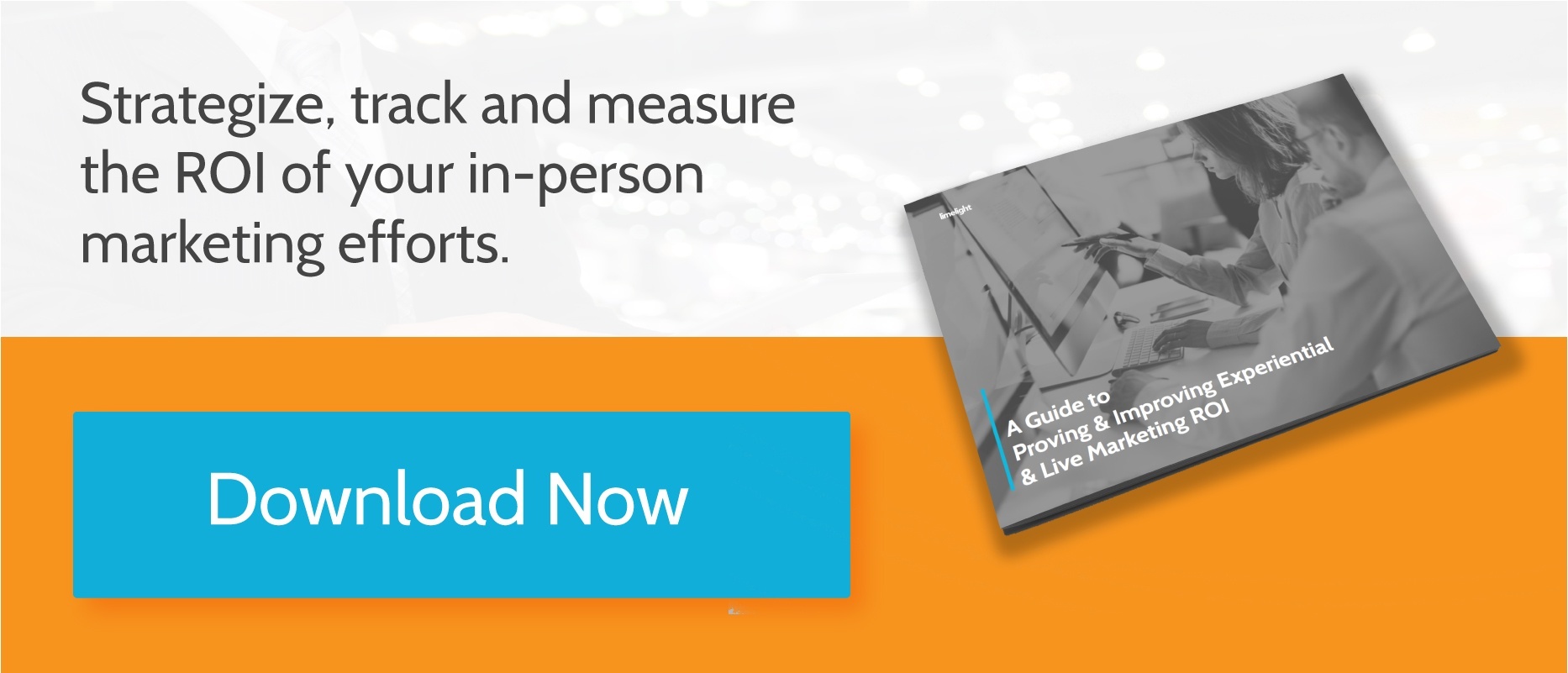Experiential Marketing Software: Why You Need It & How To Use It
.png?width=50&name=download%20(1).png) By
Julia Manoukian
·
3 minute read
By
Julia Manoukian
·
3 minute read
In experiential marketing, creating unique live experiences is just half of the job. Yes, you might work with an event marketing agency that produces a buzz-worthy campaign, but the whole project is useless unless you can record, monitor and measure absolutely everything. This is where good experiential marketing software comes in -- programs that track customers across various channels, personalize your marketing engagements and engage with prospects in real time.
No, a basic customer relationship management system just won't do. You need to choose an experiential agency that uses the right platform in the right place at the right time.
The Current Climate: Room for Improvement
All marketing agencies use the newest software, right? Well, no.
Research shows that not every agency is ready to adopt the latest tech, especially when it comes to automation software. Only 67 percent of marketers use marketing automation programs, meaning one third still rely on old technologies to track leads and maximize customer-centric marketing.
For the two-thirds of marketers who do use automation, the vast majority of them like this technology. Ninety-one percent of marketing automation users believe this software is "very important" to the overall success of their marketing campaigns.
Why Don't More Marketers Use the Latest Software?
There are various reasons why marketing agencies haven't embraced the experiential marketing technology. Perhaps marketers feel the latest software is just too complicated.
"Marketers shouldn't let that fear hold them back," says Derek Korte, writing for Oracle Marketing Cloud's blog. "Similar to any new tool, there's a learning curve, but it's nothing that existing marketing staff can't master over time. And once the program is in use, marketers can reap big benefits."
Other marketers don't see the value of automation software, and how vendors market these programs might fuel this misconception. "One of the problems with all the content being developed is that it doesn't attempt to build a relationship or connection with the buyer," says Mary Wallace, writing for MarTech Today. "Much of today's content talks about a company's products and what its features and functions do. It doesn't talk about buyer needs and how to help them."
As experiential marketing explodes, live marketing automation software usage is on the rise. The bedrock of any experiential campaign, these programs feed brands and agencies information in real time so they can monitor their marketing initiatives and make quick decisions based on high-quality experiential marketing analytics:
- 64 percent of people said marketing automation software produced better quality leads
- 48 percent said it improved marketing productivity; and
- 39 percent said it produced better conversion rates
The Benefits of Live Marketing Automation Software
Live automation software is particularly useful at live events. Whether it's a trade show or exhibition, brands and agencies can boost sales enablement with real-time reporting. On-site lead qualification, contextual follow-ups, digital form validation -- these are just some of the features of good live automation software. True, these programs won't enhance the actual content of a live experience, but they are vital tools that streamline pretty much everything at an event.
Without the latest software, brands and agencies have to rely on antiquated systems that don't measure their return on investment properly. Even worse, manual processes -- like recording event attendance with pen and paper -- often result in errors that could jeopardize an entire marketing campaign. Old software hinders relationships between marketing agencies and brands, too.
Some companies compensate marketers based on their ability to boost awareness, traffic and clickthroughs, as well as sales growth. Without the right software to track these metrics, brands are unable to monitor campaigns properly -- and this could leave marketers short-changed.
"The old ways of commission-based compensation don't align with today's needs," says a recent article by McKinsey & Company. "Marketing leaders need to ensure that each agency has incentives to improve results for your brand. Many of our clients now bring agencies in for integrated ideation sessions and expect them to work together as a team."
How Live Automation Software Impacts Analytics and Engagement
And what about the quality of experiential marketing analytics?
While marketing agencies have in-house methods that measure metrics like total visits, dwell time -- the average amount of time that a visitor spends at a particular site at a live event --and conversion rates, live automation systems streamline data-gathering processes significantly. This software automates many manual tasks and produces in-depth reports in a number of verticals. What's more, all the information you need is one place, making it easy to track customers without using several programs.
It can transform engagement, too. "Marketing automation enables businesses to overcome a lack of familiarity by creating highly personalized and relevant content, tracking engagement and nurturing relationships through consistent contact based on their preferences -- all of which ultimately helps develop trusted relationships," notes the Forbes Agency Council.
Live marketing automation programs provide you with valuable business intelligence at every stage of your experiential campaign, making it must-have software for trade shows, activations and in-store demos. While these systems can't replicate the passion and creativity of a good marketer, they are a crucial component of your experiential marketing mix.

